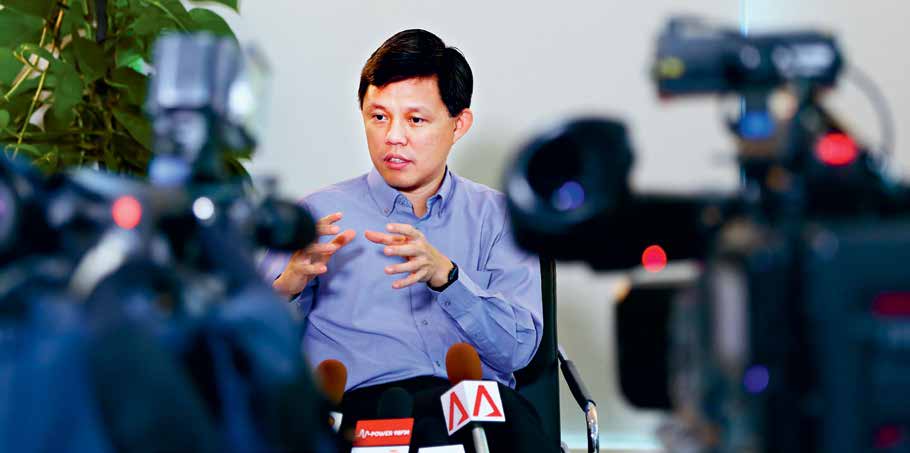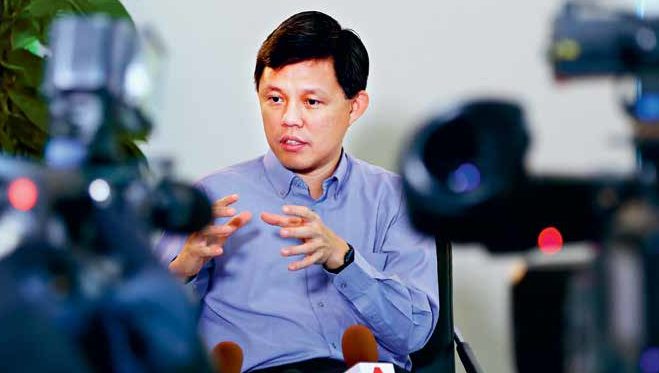
The paramount priority for the Labour Movement is to ensure workers have good jobs and good salaries to take care of themselves and their families, regardless of who helms the NTUC.
NTUC Secretary-General (SG) Chan Chun Sing, who assumed his role on 4 May 2015, was speaking to the media on 29 April 2015 at NTUC Centre to share his plans as the new Labour Chief.
Quality Investments And Tripartism
Mr Chan emphasised that some fundamentals in Singapore will not change, and that the environment for job creation in Singapore must continue to be more positive with a competitive advantage compared to other countries.
“Other countries are competing with more abundant manpower, cheaper manpower costs, cheaper production costs and they are catching up in these areas.
“The first issue is that we must have a conducive environment to attract the investments, and the type of investments we must attract cannot compete based on prices and quantity type,” he said.
SG Chan noted that one of the reasons employers are prepared to invest in Singapore to create jobs is due to the overall business environment and unique labour-management relationship.
“One of the things they talk about is the very special tripartite relationship that we have in Singapore between labour, management and the Government. One of the top challenges for us is how do we build on this unique relationship so that it is our competitive advantage,” said SG Chan.
No Let-Up
He said there will be no let-up in this area and no resting on laurels. The task ahead is to groom a new generation of tripartite partners, starting from the young to ensure that in the next five, 10, 15 years, Singapore enjoys the same strong, if not stronger, tripartite relationship.
This will be done not only at the macro level, but at the sectoral level too so that the unique relationship brings about investments and with it, jobs for workers.
Upskilling For All
SG Chan said unions have an important role to play in the area of upskilling, and that the Progressive Wage Model (PWM) is not just for low-wage workers.
It also applies to the professional sector, where a structured career path is being developed for them to move forward.
“In many other countries, the union is seen as a problem solver, a party who helps you to manage conflicts. But in Singapore, the unions are not just solving problems.
“The union for many companies, when used well, is a partner in their human resource development and an extension of their training and re-profiling effort,” he said.
Increasing Productivity
SG Chan also wants to give greater focus to productivity growth, sector by sector and industry by industry.
He elaborated: “In the next few years when it comes to productivity growth, I prefer not to talk in generality. I prefer to look at each individual company and sector and examine the needs in detail.
“And then we come out with specific plans for the respective companies, unions gear up their workers to be ready, and that is hard work. But if we do it well, then our workers will continue to have a chance to upgrade their skills and earn a better pay.”
“Our challenge is not whether labour wins or management wins, our challenge is Team Singapore, and once the companies realise this, then they will realise that’s where our competitive advantage is,” concluded SG Chan.

